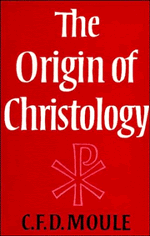Book contents
- Frontmatter
- Contents
- Acknowledgements
- Abbreviations
- Introduction
- 1 Four well-known descriptions of Jesus
- 2 The corporate Christ
- 3 Conceptions of Christ in writers other than Paul
- 4 The scope of the death of Christ
- 5 The fulfilment theme in the New Testament
- 6 Retrospect
- 7 Prospect: the ‘ultimacy’ of Christ
- Excursus: Obeisance (proskunein)
- Index of references
- Index of names
- Frontmatter
- Contents
- Acknowledgements
- Abbreviations
- Introduction
- 1 Four well-known descriptions of Jesus
- 2 The corporate Christ
- 3 Conceptions of Christ in writers other than Paul
- 4 The scope of the death of Christ
- 5 The fulfilment theme in the New Testament
- 6 Retrospect
- 7 Prospect: the ‘ultimacy’ of Christ
- Excursus: Obeisance (proskunein)
- Index of references
- Index of names
Summary
It is time to look back over this inquiry into the roots of Christology and to collect up the findings; and then an attempt will be made to draw some conclusions.
The contention has been that development is a better analogy than evolution for the genesis of New Testament Christology. That is to say, it is not that new conceptions of Jesus were generated in an evolutionary succession of new species by the creative imagination of the Christian communities as they drew upon the resources of other religions and cults. Rather, communities and individuals gained new insights into the meaning of what was there all along – ‘from the beginning’ as the writer of 1 John would say. To say this is to maintain that New Testament conceptions of Jesus are all, in their different degrees, ‘true’ to the Person, Jesus himself, even if some are more profound than others.
This, admittedly, looks like a rash and question-begging claim. As was recognized at the beginning of this study, it might be argued that it either means more than is warranted by the evidence, or that it means nothing because it is a circular statement. It would, indeed, be a totally circular statement if ‘true to Jesus’ simply meant true to the Jesus whom New Testament writers believed themselves to have found. But that is not the meaning intended throughout this study.
- Type
- Chapter
- Information
- The Origin of Christology , pp. 135 - 141Publisher: Cambridge University PressPrint publication year: 1977



